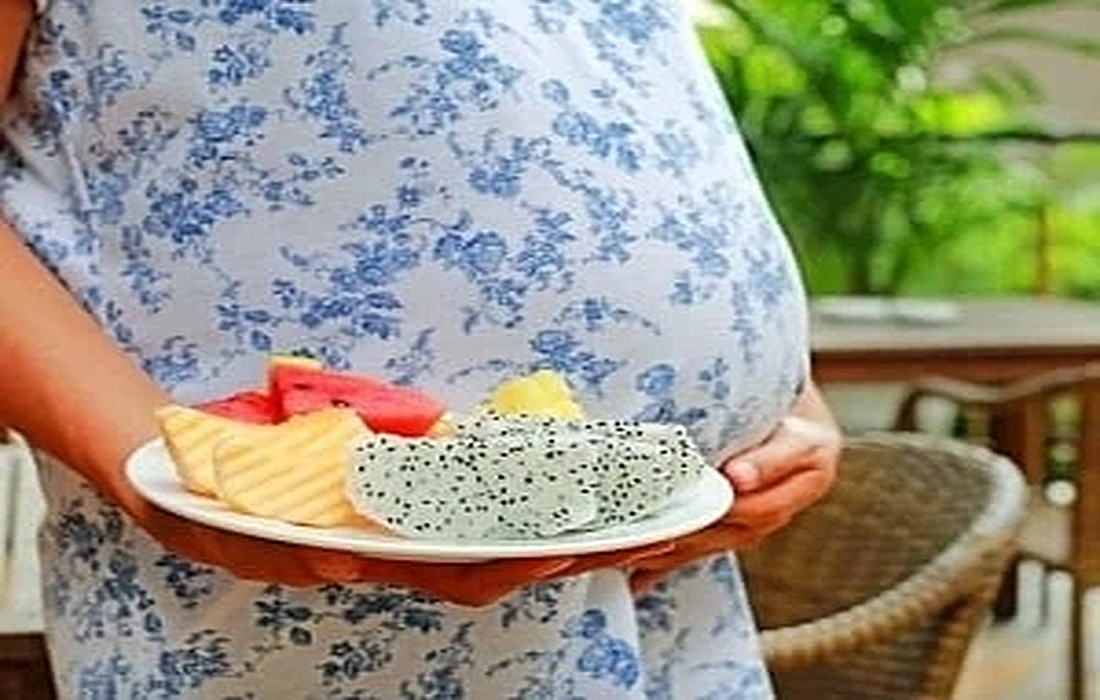Healthy and suitable breakfast options for pregnant women with and without diabetes
Eating breakfast is very important because the body needs nourishment after fasting throughout the night. DuringPregnancyThe diet planned for mothers is essential for the healthy developmentof the fetusTherefore, it is necessary for pregnant women to have a nutritious breakfast so their babies can get the nutrients needed for healthy growth. In this section of SelMagz, we will discuss why a healthy breakfast during pregnancy is important and introduce foods thatare beneficial during pregnancy, as well as foods to avoid.
What is gestational diabetes?What is it?
If the mother’s body resists the insulin produced in the pancreas and blood sugar levels rise above normal, the woman is diagnosed withgestational diabetes or high blood sugar during pregnancy. This affects about 18% of pregnant women. Changing diet and eating suitable foods can help controldiabetesduring pregnancy.What should a pregnant woman’s breakfast include?

Although everyone should start their day with a healthy breakfast, it is especially important for pregnant women. Their breakfast should include nutrients needed for both themselves and their babies. Foods that pregnant women should include in their breakfast are:
1- Protein-rich foods
Proteins are the building blocks of DNA, tissues, and muscles. Your baby needs protein for cell differentiation, tissue growth, and overall development. Some protein-rich foods include: yogurt, eggs, cheese, milk, sprouts, lentils, (dal), and nuts.
2- Calcium-rich foodsCalcium is essential for strong bones. Both mother and baby need it for healthy bones. Pregnant women require about 1000 mg of calcium daily to meet their needs. Some calcium-rich foods for breakfast are cheese, green vegetables, almonds, figs, sesame seeds, milk, and yogurt. dairy products make a healthy breakfast, but it’s better not to overconsume them. Drinking milk or yogurt in the morning helps prevent sudden blood sugar spikes. Choosing low-fat dairy prevents the build-up of saturated fats and increases in cholesterol.
Avoid overdoing butter—try to use low-fat options instead.
3- Fiber-rich foods
Constipation and indigestion can be uncomfortable during pregnancy. While they cannot always be prevented, pregnant women can alleviate some symptoms by including fiber-rich foods in their diet. Eating foods high in fiber helps pregnant women feel full longer and reduces cravings for sweets like candies and chocolates.Some fiber-rich foods suitable for pregnancy include whole grains like bran and oats, flaxseeds, chia seeds, broccoli, maize, fresh figs, apples, bananas, and pears.4- Whole grainsWhole grains are rich in vitamin B, dietary fiber, carbohydrates, and minerals like magnesium, iron, and selenium. These nutrients are important for healthy growth and development of the baby. Examples include: wheat bulgur, oatmeal, buckwheat, oats, rice, millet, and sorghum.5- Foods rich in iron and folate

As discussed earlier in the pregnancy and newborn sections, the mother’s body needs extra iron during pregnancy to supply blood for both herself and her baby. Folate is important for proper brain and spinal cord development. Include foods rich in folate like spinach, kale, asparagus, broccoli, lentils, avocado, and Brussels sprouts in your diet. Most dark leafy greens are high in folate and iron. Foods rich in iron also include whole grains, meats, fish, tofu, liver, soybean seeds, nuts, and seeds.
What is the best breakfast for women with gestational diabetes?Eating bread with cheese is a beneficial breakfast during pregnancy. It’s better to choose whole grain bread to keep blood sugar levels stable, and add a small amount of walnuts to the bread and cheese. Whole grain breads contain complex carbohydrates that cause blood sugar to rise slowly and steadily.Eating fiber-rich foods and consuming a cup of low-fat dairy in the morning can prevent sudden blood sugar increases. This is especially important for pregnant women and helps in managing gestational diabetes.
One of the best breakfast options for diabetics that helps control blood sugar is eating a cup of oats 5 to 6 times a week, which reduces the risk ofType 2 diabetesby up to 39%.Women with gestational diabetes should avoid butter and jam at breakfast because jam contains simple sugars that can sharply increase blood sugar levels. If craving butter, opt for a small amount of vegetable butter and only as much as needed to curb pregnancy cravings.Diabetic individuals can add a little cinnamon to their tea because
cinnamon
is effective atreducing blood sugarand adding it to tea or coffee can help control and manage diabetes.
Boiled eggs are also a protein-rich breakfast choice for diabetic patients. Proteins help maintain a feeling of fullness without affecting blood sugar levels. Eat any style of eggs you like up to three times a week to benefit from their protein and carbohydrate content, but never consume raw eggs.
Eggsshould not be eaten raw.Foods to avoid during pregnancy:Not all foods are safe during pregnancy. The following foods should be avoided during pregnancy:1- Raw eggs

Raw eggs may contain Salmonella bacteria, which can cause
food poisoningand pose risks to the fetus. Always eat pasteurized eggs that are fully cooked.2- Unpasteurized dairy productsUnpasteurized dairy like soft cheeses and blue cheese may contain Listeria, which can cause food poisoning or serious pregnancy complications like fetal death. Avoid consuming unpasteurized dairy products.3- Raw or undercooked meats and seafood
Undercooked meat can lead to food poisoning. Ensure meat is thoroughly cooked. Seafood can contain high levels of mercury, which may cause birth defects. It’s best to avoid seafood during pregnancy.
4- CaffeineCaffeine can cross the placental barrier and increase the fetal heartbeat, and is associated with miscarriage. It’s recommended to avoid caffeinated drinks like coffee or soda during pregnancy.Safety Tips for Breakfast for Pregnant Women

1- Consume only fresh foods:
Fresh foods are the most nutritious. Eating fresh and cooked foods for breakfast provides all the essential nutrients for you and your baby.Expired or stored foods in the fridge for several days lose their nutrients and may cause poisoning.2- Never skip breakfast:Skipping breakfast can lead to obesity and insulin resistance. Those who eat breakfast generally resist fatty and high-calorie foods better. The goal of eating breakfast in diabetics is better blood sugar control and preventing overeating during the day.3- Wash your hands before every meal:
This ensures you and your baby are protected from infections. Use hand sanitizer if needed.4- Properly wash fruits and vegetables:Fruits and vegetables can carry dirt, bacteria, and pesticides. They should be washed thoroughly before eating to reduce the risk of infection. Vegetables are often cooked after cleaning, but fruits are usually eaten raw unless making jams. To ensure cleanliness, soak fruits and vegetables in

salt water
before eating.
Morning meal tips during pregnancy
1- Eat slowly step by step:If you suffer from morning nausea and cannot eat a big breakfast, start with liquids. As mentioned earlier in SelMagz, ginger or lemon may help. Then start with a piece oftoast
or a biscuit and rest a little; then gradually resume eating until you feel full and satisfied.
2- Stay hydrated:
Staying hydrated throughout the day is very important. You can drink water, fruit juices, coconut water, or clear soups. Make sure to consume enough liquids during breakfast.
3- Avoid fats:
Healthy fats are important for you and your baby. Include fats like avocado, olive oil, coconut oil, butter, nuts, and animal fats in your breakfast.
4- Consume plenty of fruits and vegetables:Fruits and vegetables contain many nutrients your baby needs for healthy growth. Include a bowl of your favorite fruits and vegetables at breakfast, but avoid raw papaya, pineapple, and grapes.Proper pregnancy breakfastPregnancy breakfastGestational diabetes breakfastSuitable pregnancy breakfastBest pregnancy breakfast

Gestational diabetes breakfast
Pregnancy breakfasts
Best pregnancy breakfastNutritious pregnancy breakfastPregnancy and diabetes
Foods harmful during pregnancy
Pregnancy period breakfast

Diabetes and diet in pregnancy
Harmful foods during pregnancy
Gestational diabetes and nutrition
Week-by-week pregnancyWeek-by-week fetal developmentPregnancy week-by-week

Gestational diabetes
Normal blood sugar levels
Diabetes treatmentPregnancy breakfastBenefits of lentilsBenefits of yogurtWays to increase blood cholesterol
Suitable pregnancy breakfast
Benefits of salt waterBenefits of gingerHow to prepare toast breadBenefits of coconutHow to make various soups

Foods harmful during pregnancy
Benefits of pineapple







